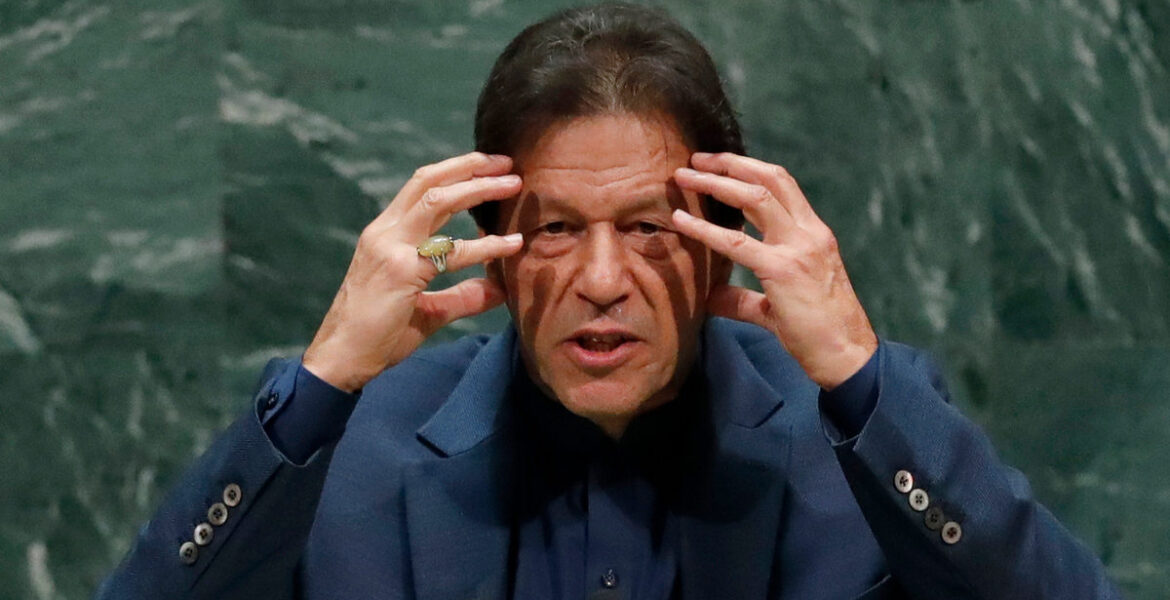Pakistan’s ousted premier Imran Khan said in a recent interview that his country would lose the "moral ground" on Kashmir if it recognises Israel.
In the interview to The New Yorker, Khan sought to draw parallels between the “disputed” nature of Israel and Kashmir for justifying his support to the Palestinians who are locked in conflict with Israeli forces.
“Because Kashmir is a disputed territory between Pakistan and India, we do make statements on that. About Israel, it was the stated position of the founder of Pakistan and the situation is similar to what is happening in Kashmir,” he said, responding to a query about him not commenting about China’s atrocities towards Uyghur Muslims.
“If we recognise Israel, we then lose the moral ground of holding on to Kashmir—that they should be given the right of self-determination or homeland. I speak on these two issues,” he said, in the interview published Sunday.
One of the most militarised places in the world, Kashmir has been a bone of contention between nuclear-armed India and Pakistan ever since the two countries became independent in 1947.
The Pakistan Tehreek-e-Insaf (PTI) chief highlighted Islamabad’s dependence on Beijing to explain how he had to be “selective” when it comes to supporting human rights.
“…when you become the Prime Minister, you have to think of the consequences of making a statement. Pakistan is heavily dependent on China. For Pakistan to make a statement, with the Chinese being very sensitive to such criticism, it could be very costly. That’s why I have to be selective when I say things about human rights,” he said.
Khan also described how Pakistan’s nascent years were akin to Israel’s after the former was carved out of India.
“Pakistan’s neighbour, six or seven times in size, is India. The state grew up with fear, much like in Israel, where there was this feeling that we have hostile neighbors much bigger than us, and therefore we need to protect ourselves. The reliance on security became paramount because there was fear that our existence was threatened,” he said, explaining how the military came into prominence in his country.
It was “too idealistic” to expect that Pakistan would suddenly become some Western democracy having absolute civilian supremacy, the cricketer-turned-politician said. “But we do hope to have some sort of a balance between the military and the civilians… A huge, immediate change is not possible, because our security apparatus has gotten very entrenched over the years.”


